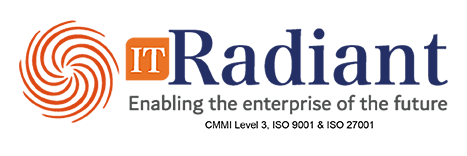In the pharmaceutical and life sciences manufacturing industry, maintaining supply chain integrity is paramount. Serialization has emerged as a crucial strategy to enhance traceability, compliance, and security in this sector. By uniquely identifying each product unit with a serial number, companies can ensure that their products are safe and authentic, significantly improving overall supply chain integrity. This blog explores the impact of serialization through real case studies, highlights its benefits, and discusses how businesses can achieve a strong return on investment (ROI).

The Importance of Serialization
Serialization involves assigning a unique identifier to each saleable unit of a product. This process allows for precise tracking throughout the supply chain, from manufacturer to distributor to end user. In industries where counterfeiting and product recalls are significant concerns, serialization plays a vital role in ensuring product authenticity and safety.
Case Studies in Pharma and Life Sciences
1. Pfizer: Enhancing Drug Safety
Pfizer implemented serialization to comply with the Drug Supply Chain Security Act (DSCSA) in the United States. By employing a robust serialization strategy, Pfizer increased visibility into its supply chain. The system enabled real-time tracking of products, allowing the company to quickly identify and address issues related to counterfeit drugs. This proactive approach not only improved compliance but also enhanced customer trust in Pfizer’s products. The investment in serialization has led to reduced risk of counterfeiting and a safer supply chain, contributing to overall brand integrity and customer loyalty.
2. Novartis: Streamlining Operations
Novartis adopted serialization to enhance its operational efficiency and regulatory compliance across global markets. By integrating serialization into its supply chain management system, Novartis was able to streamline its processes, reducing the time and resources required for inventory management and product recalls. During a major product recall, the serialized system allowed Novartis to quickly identify affected batches, minimizing the impact on patients and the company’s reputation. The cost savings realized from improved efficiency and reduced recall costs significantly contributed to the ROI of their serialization investment.
3. GSK: Tackling Counterfeit Drugs
GlaxoSmithKline (GSK) recognized the growing threat of counterfeit drugs and implemented a comprehensive serialization system across its supply chain. This initiative not only improved traceability but also enhanced collaboration with distributors and retailers. By providing a secure and transparent means of tracking products, GSK significantly reduced instances of counterfeit medications reaching consumers. The serialization investment paid off as GSK reported lower losses associated with counterfeit drugs and improved customer confidence, ultimately leading to increased sales and market share.
Benefits of Serialization
- Enhanced Traceability: Serialization allows for precise tracking of products at every stage of the supply chain. This transparency helps in quickly identifying issues such as product recalls or counterfeit products.
- Regulatory Compliance: With stringent regulations in place, serialization ensures that companies comply with legal requirements. This minimizes the risk of fines and penalties associated with non-compliance.
- Improved Operational Efficiency: Automated tracking and reporting reduce the time and effort required for inventory management, allowing employees to focus on more strategic tasks.
- Increased Consumer Confidence: Serialization enhances the perception of product safety and authenticity. Consumers are more likely to trust brands that prioritize product integrity, leading to increased loyalty and sales.
- Cost Savings and ROI: The initial investment in serialization technologies is often offset by the savings achieved through reduced counterfeit losses, efficient recall processes, and improved compliance.
The ROI from serialization is realized through various channels. Companies can save significantly on costs associated with product recalls, regulatory fines, and losses from counterfeiting. Additionally, the enhanced operational efficiencies gained from automated processes can lead to significant labour savings. As seen in the cases of Pfizer, Novartis, and GSK, the investments made in serialization not only improve supply chain integrity but also contribute to a more robust bottom line.
Serialization is not just a regulatory requirement; it is a strategic imperative for pharmaceutical and life sciences companies aiming to enhance supply chain integrity. By investing in serialization, companies can improve traceability, compliance, and operational efficiency while gaining significant ROI. The case studies of industry leaders like Pfizer, Novartis, and GSK demonstrate the tangible benefits of serialization, underscoring its critical role in safeguarding product integrity and enhancing consumer trust. As the industry continues to evolve, embracing serialization will be essential for maintaining competitive advantage and ensuring the safety of products in the marketplace.

